Space Design
Your home is your cocoon, more so on cacophonic days when the chaos and noise just won’t cease. In today’s context of the way our world and people operate, peace of mind is highly sought after, yet seems to elude us most of the time.
So how do you get there…or at least halfway?
Your home is your true identity and completely yours to control. So, what better way than to let your home provide you the peace and solace that you require? We have understood your intrinsic desire to attain peace and bring you seven Japanese Design Principles that are deeply embedded in Zen Philosophy.
These principles have not only inspired the magnificent traditional Japanese gardens but have also encouraged the desire for holistic and better living.
The beauty and tranquillity of such spaces leave you feeling calm, connected, and complete.
Sounds tempting?
Well, we have summarised these seven principles into ideas that you could easily incorporate into your home to create a clean and harmonious flow of energy.
Idea 1: Imagine Your Space as an Extension of Your Mind
A heavily cluttered space leads to a burdened and unclear mind. Are you overwhelmed and zapped of energy every time you open your cluttered garage or storage room?
Perhaps a bit of Kanso – or decluttering – can help you put the space to a more purposeful use. Here’s a simple method to give you a jump-start. Make a list of all your things and categorise them into 4 actionable tasks:
A) Need to Keep: All things you cannot ‘survive’ without
B) Want to Keep: All things you cannot ‘live’ without
C) To Give: Things that can add value to another
D) To Throw: Things that need to go
REMEMBER: The decision to declutter may be difficult as it’s tough to part with things. This little list trick simply helps us organise the road to success.
Living in a clutter free space, allows for a clutter free mind that can focus on what matters most.
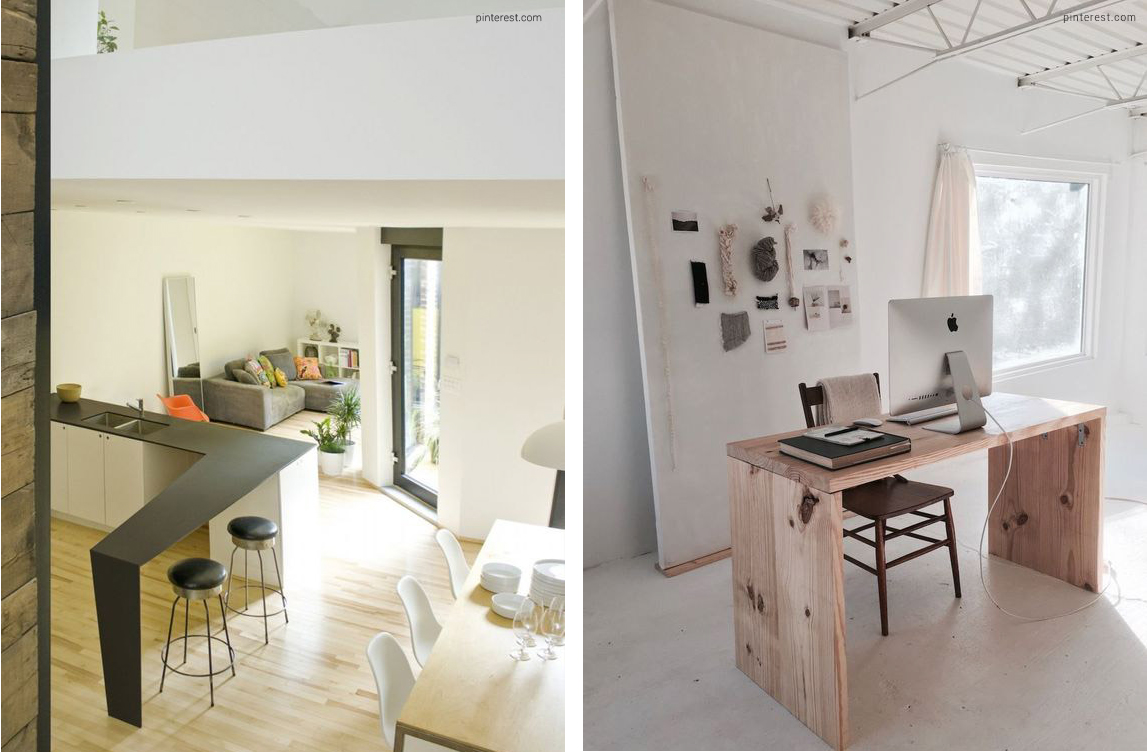
Idea 2: Embrace Irregularities and Imperfections
We often get caught up in chasing the idea of perfection – the perfect job, clothes, body and home. We want to live up to a notion of what is “ideal”. Not to say we must not strive for improvement, but sometimes things are right just the way they are.
Fukensei encourages acceptance – finding joy in the little imperfections. It highlights uniqueness and drives an emotional experience. So, why not extend this to the décor of your home?
Instead of polishing and refurbishing that old armchair you just inherited from your grandmother, why not leave it as it is – reminiscent of her life? Or repurpose a discarded piece of wood into a storage box or small tabletop. It’s a way of paying homage to beauty as it occurs in our naturally imperfect world.
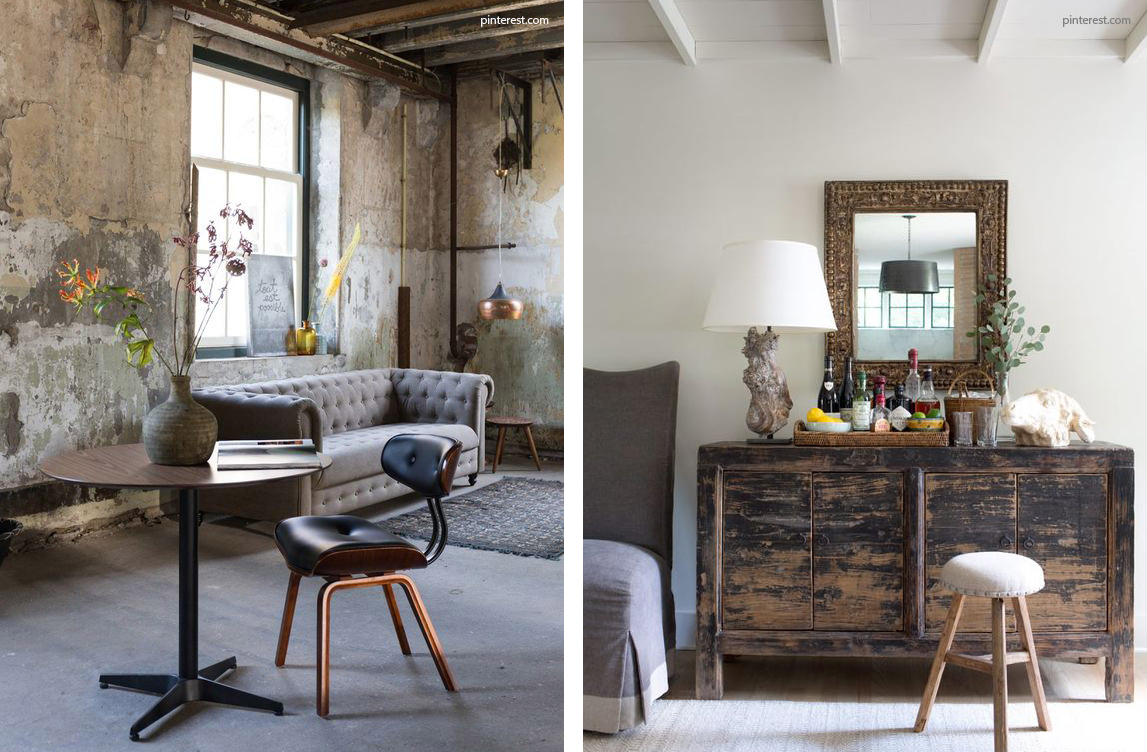
Idea 3: Practice Restraint Without Compromising on Functionality
In today’s world, extravagance and excessiveness is often considered a sign that you have arrived. The principle of Shibui however suggests that a design that delivers its intended function in a quiet, unobtrusive manner need not be decorated in order to make it attractive. Admiring the design for how well it serves a function, by leaving it as it is, is its true appreciation. It alludes to a refined taste and an understanding of good design. It encourages minimalism, by keeping the focus on what is important.
Keeping this idea in mind, try to incorporate designs that are clean, functional and practical. This enhances focus and alludes to sophistication rather than pretentiousness. For example, if you have a living room with a fabulous view, don’t take away from its panoramic beauty by adorning windows with heavy curtains or walls with distracting paintings.

Idea 4: Strike a Balance Between Natural and Intentional Elements
Living in or close to nature could extend your life. Greenery has been known to have a calming effect and keep your mind focused. Coupled with this are physical benefits such as cleaner air.
The principle of Shizen refers to design that takes cognizance of nature and adapts to it, but always keeps the function of the design in mind. It is possible for you to infuse some of the positive benefits of nature into your home, even if you live in a small apartment. Here are some ways to do just that:
– Introduce potted plants around the house. Even a single plant on your work desk or bathroom sink can bring in a little bit of nature’s positivity.
– Cultivate a micro herb garden on your kitchen windowsill. You’ll be able to use freshly plucked herbs in all your cooking.
– Improve your productivity and enjoy the benefits associated with the natural light of the sun by placing your work desk where it gets maximum sunshine.
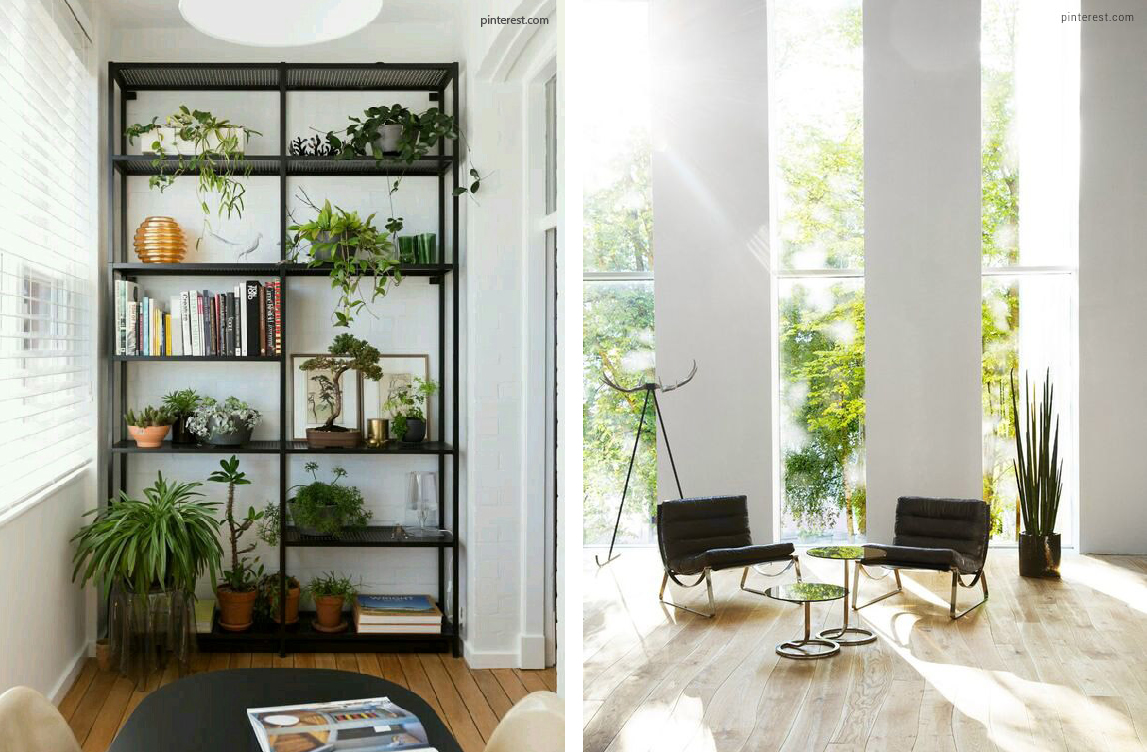
Idea 5: Don’t Fear Ambiguity; Invite Discovery
Yugen suggests that when we define something completely – for example, if we say that a dining table can be used only for eating – it leads to stagnation and loss of imagination.
Including elements in your décor that could be open to interpretation unlocks possibilities and encourages imagination. It could be as simple as a painting that provokes thought; or a bar stool made out of a tree stump that could find alternative uses – a side table perhaps. A dining table that has an easy to clean surface, like a granite top, could be used for diverse activities – from art projects to rolling dough. This principle finds particular use in small spaces.
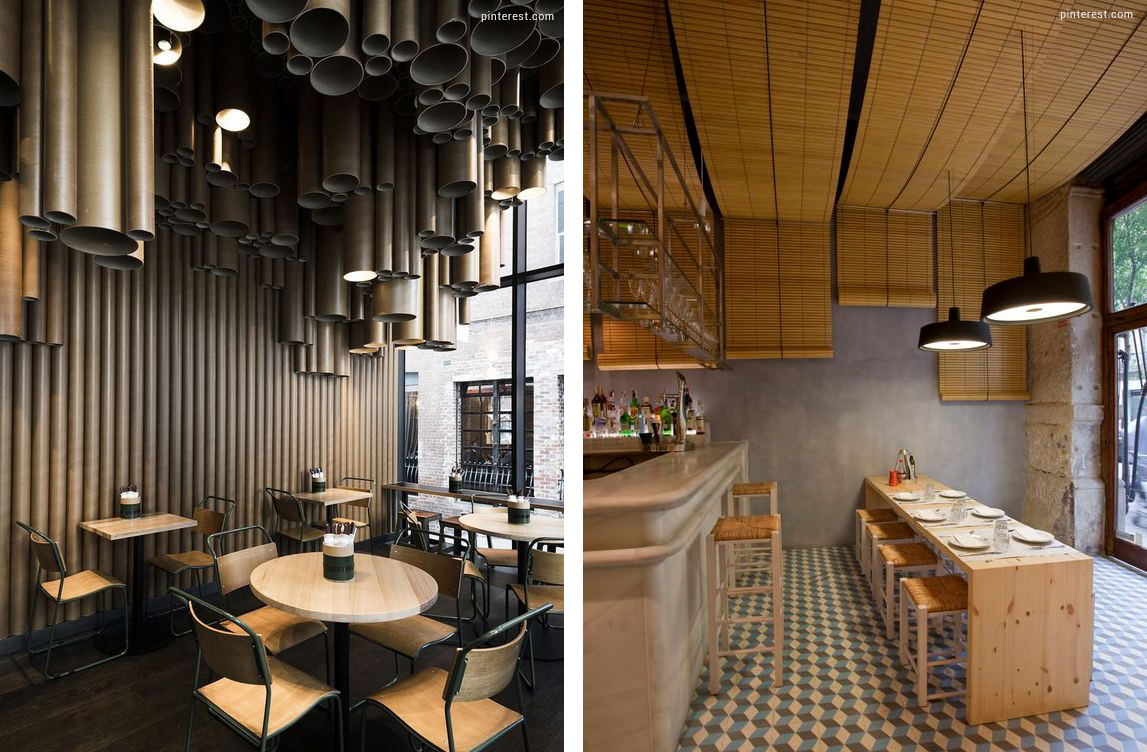
Idea 6: Break Patterns; Encourage Unpredictability
Do you often feel like a hamster on a wheel? Doing the same thing day after day after day, in a monotonous ‘need to do’ cycle?
Datsuzoku encourages moving away from routine and towards surprise and amazement. By bringing this principle into the design of your home’s interiors, you can create spaces – little respites – that allow your mind a break from your otherwise clockwork existence.
Most of us have at least one room or space in our home that we believe is uninteresting, but exists to serve a specific purpose – a small, poorly lit and unengaging guest washroom for example. Bringing in the element of surprise, such as by adding a thought-provoking and strategically lit painting, photo, framed quote or interesting patterned wallpaper can transform the energy of the space.
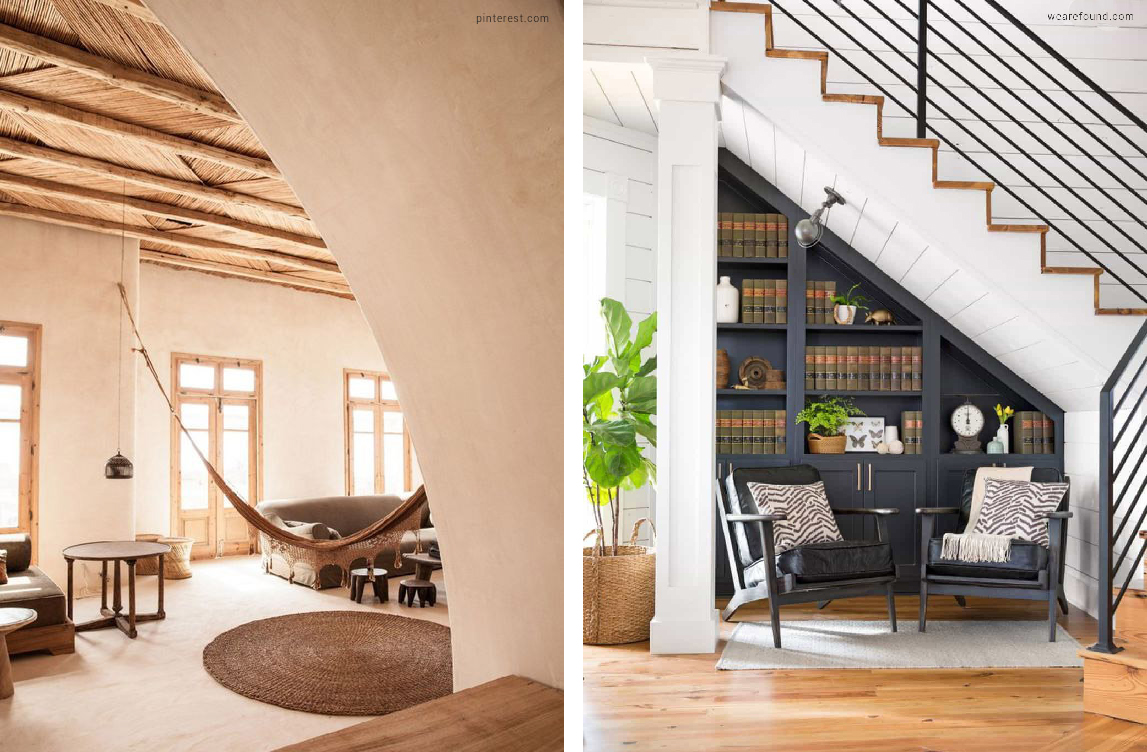
Idea 7: Find Serenity in the Midst of Disturbance
The world we live in today is hectic, demanding and distracting. Amidst all that distress, what you really need is peace and contemplation.
But often we don’t take a “time-out”, leaving us vulnerable to burnout and exposing ourselves to a variety of health problems – a result of our human tendency to procrastinate, delay, and take things for granted.
Seijaku refers to incorporating elements that bring about a feeling of calm and stillness, even in the midst of chaos. So, to avoid the usual “it’s never too late”, fix things today, and create at least one space in your home that is conducive to relaxation, meditation and rejuvenation.
Pick a room in your home – your bedroom or bathroom are good choices – and make it your sanctuary. Think about how you can eliminate disturbances – remove clutter, make it a gadget-free space and include décor elements that help you feel calm.

Zen principles allude to the importance of nurturing your soul rather than materialism. These seven ideas each tie in with nourishing a vital part of your soul and bringing balance and harmony to it.
Manifesting peace might be easier than you think and even a few small changes can make a world of difference.
Which one will you start with?
